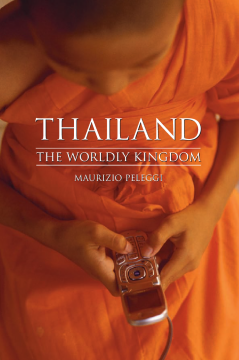
Additional Information
Book Details
Abstract
Tourist brochures and travel guides depict Thailand as an exotic country with a rich cultural heritage, strong religious traditions, and a popular monarchy. Historians also contribute to Thailand’s international allure with chronicles of its unique historical and cultural continuity in comparison to the other southeast Asian countries, whose histories are stained by colonialism and nationalist struggles for independence.
Thailand challenges these stereotypes with a reinterpretation as well as an introduction to the emergence of Thailand as a nation-state. The book argues that the development of Thai nationhood was a long-term process shaped by interactions with the outside world, its pursuit of civilization, and, more recently, globalization. Maurizio Peleggi’s original account investigates, among other issues, the evolution of the geographical and linguistic landscapes, changes in class and gender relations, the role of institutions and ideologies, modern cultural expressions, social memory, and the conception of the Thai national self as contrasted against the racial and cultural Others of Burmese, Chinese and Westerners.
Thailandis a concise and compelling introduction to the complexities that lie behind Thailand’s exotic facade.
Maurizio Peleggi's new book on the modern history of Thailand offer a boldly innovative introduction to the kingdom and its nation-building projects. It concentrates on the long twentieth century when Thailand underwent seismic shifts in nearly every arena of human and institutional life, and from which the country emerged as 'modern' . . . [it] successfully assimilates the most recent historical and historiographical scholarship on Thailand into a new narrative . . . an intrepid and original treatment of both history and Thailand.' South East Asia Research
Maurizio Peleggi is assistant professor in the Department of History at the National University of Singapore. He is also the author of Lords of Things and The Politics of Ruins and the Business of Nostalgia.
